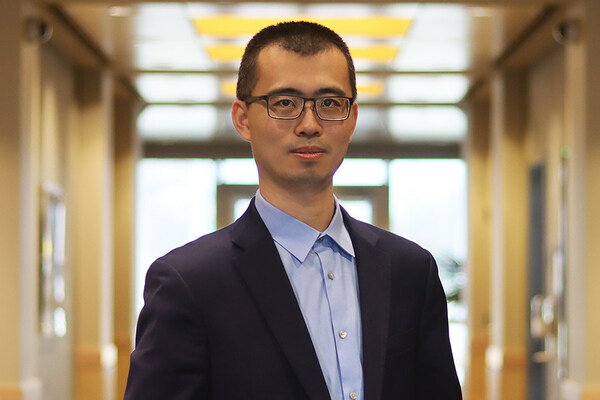And a a lot of your problems are that you have no objective damage diagnosis. The NIHSS and Rankin scales are worthless for being able to match protocols to damage.
University of Oklahoma is Developing Individualized, Optimized Brain Injury Rehabilitation
NORMAN, Okla. , March 3, 2023 /PRNewswire/ -- More than 500,000 people in the United States undergo rehabilitation following a stroke or brain injury every year. Movement impairments following a stroke are a major cause of adult disability in the United States, and routine treatments are not currently optimized for individual patient needs.
University of Oklahoma biomedical engineer Yuan Yang, Ph.D., has received a five-year "CAREER" award from the National Science Foundation to advance the scientific study of brain functional changes after a stroke and pioneer a tailored rehabilitation strategy that fits individual needs.
"The way a stroke victim's brain adapts to the injury varies from individual to individual," Yang said. "But routine clinical practice tends to treat everyone the same. When that happens, doctors cannot provide an optimal treatment for each patient."
Yang is an OU-Tulsa assistant professor in the Stephenson School of Biomedical Engineering, Gallogly College of Engineering. He will use multi-modal MRI scans in combination with an electrical neural activity scan to precisely assess the changes to motor control in an injured brain.
"Despite numerous efforts to develop new technologies for movement rehabilitation after a stroke, optimal recovery is still limited due to a lack of imaging guidance and real-time neurofeedback to tailor a rehabilitation strategy for each individual," Yang said. "Our program will be able to tell doctors which areas of the brain to stimulate in a non-invasive, non-painful manner to reduce a patient's recovery time and reduce the health care and nursing costs for long-term disability caused by stroke and other similar brain injuries."
The project will also support the development of a multidisciplinary research education ecosystem to connect engineering students, clinician trainees and STEM educators. Learn more at https://bit.ly/OUYangCAREER
SOURCE University of Oklahoma

No comments:
Post a Comment